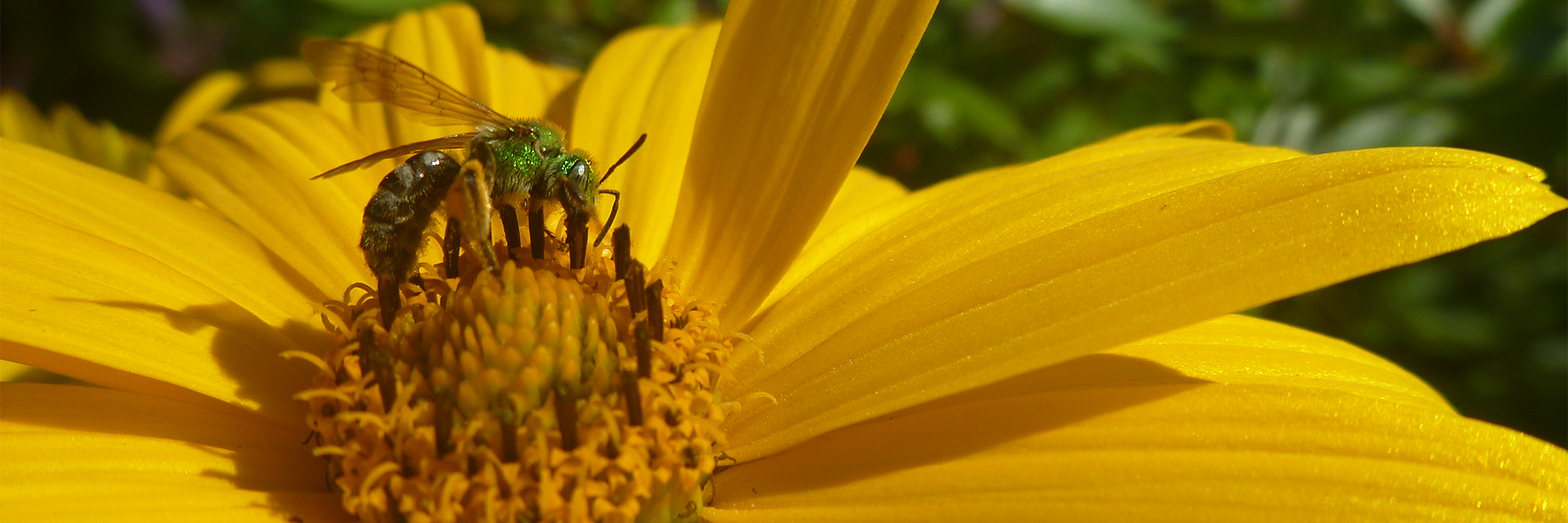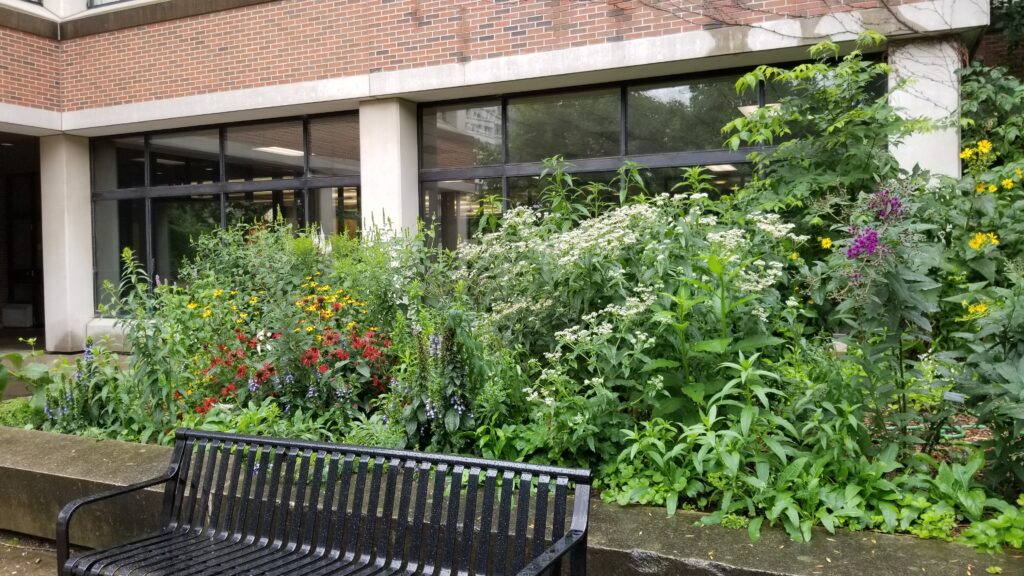
The Centre for Bee Ecology, Evolution and Conservation (BEEc) will once again mark the annual United Nations World Bee Day with new events designed to promote the health of local pollinators.
This year, for the first time, BEEc and the Faculty of Environmental & Urban Change (EUC) welcome all members of the University community to the EUC Native Plant Garden party on May 16 from 2:30 to 5 p.m.
World Bee Day, led internationally by the Food and Agricultural Organization of the United Nations (FAO), is dedicated to acknowledging and spreading awareness of the plethora of vital environmental processes that depend on the often underappreciated work of Earth’s busy bees.
"Bees are one of the most important groups of pollinators in the world, yet most people are unaware that we have at least 350 species in the GTA alone,” explains BEEc Coordinator Victoria MacPhail. “The EUC Native Plant Garden is an oasis for them on a campus full of concrete and buildings, providing food, shelter and nesting sites throughout the year.”
Observed around the world on Saturday, May 20, this year World Bee Day will arrive early at York in order to allow for the participation of as many interested community members as possible.
“We're excited to celebrate World Bee Day a few days early with the whole York University community, to take this opportunity to share our love and knowledge of bees with others,” MacPhail says. “We have a wealth of free resources and are happy to chat with people about what they can do to help pollinators, from planting native flowers to advocating for increased protections.”

The featured garden party event is sponsored in part by World Wildlife Fund (WWF) Canada and is open to all staff, students and faculty, as well as members of the public from outside of the University. Attendees will learn from York’s expert mellitologists, as well as free handouts, pinned insect displays, example bee nests and more, about the highly diverse bee species indigenous to Toronto and Southern Ontario at large, as well as the local flora that they depend on for sustenance. As a part of this hands-on learning experience, guests will be able to contribute to the University’s floral biodiversity by planting new native species in the EUC garden and removing invasive species that are less conducive to the health of local pollinators.
"We're so thrilled to invigorate our relationship and stewardship of this wonderful garden started by [Professors] Gerde Werkerle and Leesa Fawcett, among others, with the partnership of BEEc. Hundreds of students pass by or attend summer classes in this rooftop garden sitting atop lecture halls and we want them to come to know this lively oasis of over 40 species – some of them edible. May 16 will be a great start to what we anticipate will be an amazing season," says Phyllis Novak, director of the EUC Maloca Community and Native Plant Gardens.
York community members who intend to join in the gardening are asked to RSVP here by Friday, May 12. Members of the public are encouraged to drop in to this event and are not required to register. No prior experience or personal equipment is required to join in the gardening. Participants are encouraged to dress for the elements as this event will run rain or shine.
MacPhail says gardening volunteers can expect to “see examples of bee species – from tiny, smooth, black solitary bees that are only a few millimeters long and can be mistaken for flies or ants, to the large, fuzzy bumblebees that can be up to a couple centimeters in size, and whose queens are easily seen this time of year.
“Toronto's official bee, the green metallic sweat bee – or Agapostemon virescens – has already been seen nesting in the garden, and we are confident that the upcoming garden party will help to improve the habitat for it and many other wildlife species,” she adds.
Additional BEEc-hosted events will run following the garden party and in the lead up to the official World Bee Day, including a cocktail fundraiser to help endow a fund for EUC graduate students studying bees on May 17 in Markham, as well as a Scholars’ Hub virtual seminar on May 18 detailing the leading-edge research on bees being carried out at York.
For more information on these supplemental Bee Day events, contact beec@yorku.ca or see the BEEc news and social media page.
